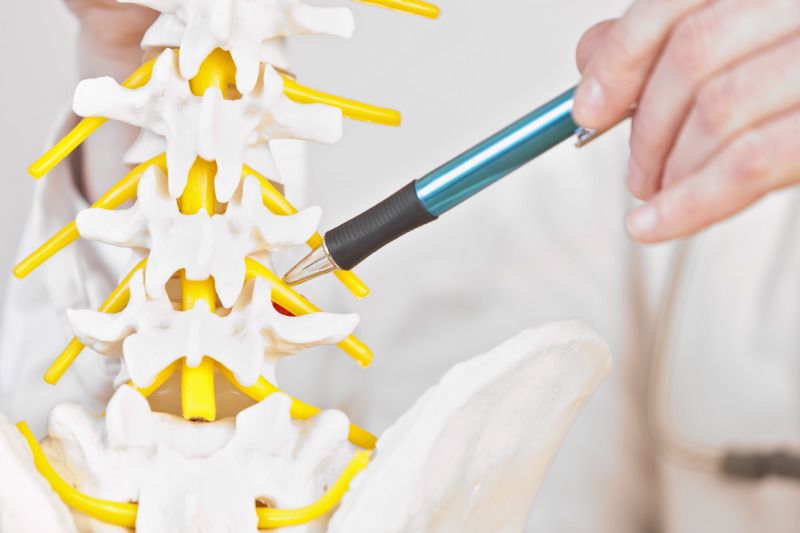
5 Symptoms of Disc Protrusion
Your spine is a complicated but vital part of your body. It is sort of like a central junction box for your nervous system, where all of your nerves connect from your body to your brain. It also holds a major function regarding your flexibility, ability to bend and stretch, and even walk upright.
When you have spinal disc problems such as a protruding disc, your whole life can be thrown out of order. Here is a look at some of the signs and symptoms of disc protrusion and what you can do to get back on the road to health.
Spinal Discs
Spinal discs cushion and insulate your vertebrae against hitting or rubbing against one another. They form flat, rubbery and circular capsules about an inch across, and a quarter inch thick. They are formed of a tougher outer core called the annulus fibrosus which surrounds an elastic inner core called the nucleus pulpous. Ligaments hold the discs tightly in place and they move on “facet joints.” Between these joints and the ligaments, there’s very little room for discs to move or slip.
Protruding Discs
When a disc is put under too much stress, it can swell, distort or bulge, which may cause it to protrude through its outer casing and press against the surrounding nerves. This pressure can cause a number of symptoms which should never be ignored. While most disk injuries happen in the lower back (the lumbar region), about 10 percent of injuries occur in the upper spinal regions. Disc injuries most commonly occur in adults between the ages of 30 and 50.
It’s also important to understand that it’s possible to have a disk injury that has no symptoms whatsoever. If the disk does not press against a nerve, there will be no discomfort or noticeable problems. If, however, you experience any of the following symptoms you should seek medical care immediately. Back pain is nothing to take lightly.
Aching and Stiffness
Spinal disc problems can result in persistent stiffness or aching all along the spine from your neck to your tail bone. This pain can also include persistent and constant headaches.
Sharp Pain
If you have sharp pain anywhere in your neck or back, after lifting or engaging in strenuous activity, this can be a sign of a protruding disc pressing against nerves.
Loss of Mobility
If you find that you are having trouble bending, stretching or twisting, particularly if this loss of mobility is accompanied by pain, you should see a doctor. This can be a symptom of a protruding disc.
Loss of Sensation
Numbness, pins-and-needles feeling or weakness in your neck, shoulders, arms, legs or groin can be symptoms of back problems. Seek medical attention if you have any loss of sensation.
Sudden Pain
If you experience sudden pain when you bend forward or cough, you could have a protruding or herniated disc.
If you are experiencing aches and pain in your back and think you may have spinal disc problems, Dr. Matzinger and Complete Injury Management can help. Read a bit about our neurology services, and give us a call for an appointment today!



